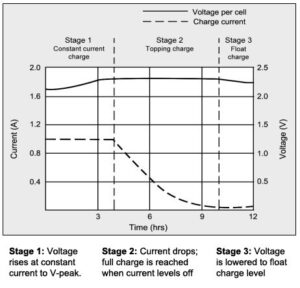Is wireless charging better for battery? This question has been buzzing around in the tech world for quite some time. And if you’re like most people, you’re probably curious to know the answer. Well, the good news is that we have found a solution that puts this query to rest. Wireless charging, indeed, has its advantages when it comes to battery life. But let’s delve deeper into the subject and uncover the reasons behind it. So, if you’ve been contemplating whether to switch to wireless charging or not, keep reading to find out why it might just be the better option for your battery.
Is Wireless Charging Better for Battery?
Introduction
The advent of wireless charging has revolutionized the way we power our devices. No longer are we tethered to charging cables, as wireless chargers offer the convenience of simply placing our devices on a charging pad or dock. However, a common question that arises is whether wireless charging is better for the battery compared to traditional wired charging methods. In this article, we will explore the various aspects of wireless charging and its impact on battery life, addressing key subtopics along the way.
Understanding Wireless Charging
Wireless charging, also known as inductive charging, involves transferring power from a charging pad or dock to a device without the need for physical connections. This technology utilizes electromagnetic fields to transfer energy between the charger and the device’s battery.
Here’s how wireless charging typically works:
- A charging pad or dock is connected to a power source.
- When a compatible device is placed on the pad or dock, an electromagnetic field is generated.
- The device is equipped with a receiver coil that converts the electromagnetic energy back into electrical energy.
- This electrical energy charges the device’s battery, providing a wire-free charging experience.
The Impact of Wireless Charging on Battery Life
While wireless charging offers convenience, it is important to consider its impact on battery life. Let’s delve into the key factors that influence the relationship between wireless charging and battery performance:
1. Heat Generation
One of the primary concerns regarding wireless charging is the potential for heat generation. When a device is wirelessly charged, energy is transferred in the form of electromagnetic waves. This energy conversion process can generate heat, which may affect the battery’s longevity.
However, modern wireless charging technologies are designed to minimize heat generation. Wireless chargers often incorporate advanced thermal management systems to regulate temperature and prevent overheating. Additionally, smartphones and other devices are equipped with temperature sensors that enable them to adjust their charging rates or pause charging if necessary.
2. Charging Efficiency
Efficiency is another aspect to consider when comparing wireless charging to traditional wired charging. In general, wireless charging is slightly less efficient due to energy losses that occur during the inductive power transfer process. These losses can result in a slower charging speed compared to wired charging methods.
However, recent advancements in wireless charging technology have significantly improved charging efficiency. The introduction of higher-power chargers and improved receiver coil designs have narrowed the gap between wired and wireless charging speeds. Consequently, the difference in charging efficiency between the two methods is becoming less pronounced.
3. Charging Habits
Individual charging habits also play a crucial role in battery performance. How you charge your device, whether wirelessly or with a cable, can have an impact on overall battery health. Here are some considerations:
- Avoid deep discharges: Frequent deep discharges before charging can negatively affect battery lifespan, irrespective of the charging method used.
- Partial charge cycles: Charging your device in shorter bursts rather than letting it drain completely can help maintain battery health.
- Avoid excessive heat: Exposing your device to high temperatures, such as leaving it in direct sunlight while charging, can harm the battery regardless of the charging method.
By adopting good charging habits, you can contribute to the overall longevity of your device’s battery, regardless of whether you choose wireless or wired charging.
Wireless Charging and Battery Longevity
Now that we have examined the factors that influence wireless charging and battery performance, let’s address the broader question: “Is wireless charging better for the battery?”
In general, wireless charging does not significantly impact battery longevity when compared to wired charging. However, it is essential to consider the specific circumstances and individual device usage patterns. Here’s a closer look at the key findings:
1. Moderate Heat Generation
While wireless charging can generate heat during the energy transfer process, modern chargers and devices employ sophisticated temperature management systems to prevent excessive heating. As a result, the heat generated during wireless charging is typically within safe limits and does not cause significant harm to the battery.
2. Comparable Charging Efficiency
As mentioned earlier, wireless charging efficiency has improved over the years, and the difference in charging speeds between wireless and wired methods has decreased. With the advancement of wireless charging technologies, the impact on battery life is becoming less pronounced, making it a viable option for everyday charging needs.
3. Charging Habits Matter
Regardless of the charging method, adopting good charging practices, such as avoiding deep discharges and extreme temperatures, remains crucial for maintaining battery health. By implementing these habits, you can ensure the longevity of your battery, irrespective of whether you opt for wireless or wired charging.
In conclusion, wireless charging offers a convenient and hassle-free solution for powering our devices. While it may generate some heat during the charging process and be slightly less efficient than wired charging, the impact on battery life is minimal. To optimize battery performance, it is essential to consider factors such as heat generation, charging efficiency, and individual charging habits.
By following best practices and taking advantage of the advancements in wireless charging technology, you can enjoy the simplicity of wire-free charging without compromising your device’s battery life. Embrace the freedom of wireless charging and enhance your overall charging experience while keeping your battery in optimal condition.
Frequently Asked Questions
Does wireless charging have any impact on battery life?
Wireless charging does not have a significant impact on battery life. Modern wireless charging technologies are designed to be safe and efficient, minimizing any negative effects on the battery. However, it’s important to note that wireless charging can generate slightly more heat compared to traditional wired charging, which may have a minor impact on long-term battery health.
Is wireless charging slower than wired charging?
Wireless charging is generally slower than wired charging. The convenience of not needing to plug in a cable comes at the cost of reduced charging speed. However, newer wireless charging technologies, such as Qi wireless charging, have become more efficient and can now provide faster charging speeds, although they may still be slightly slower compared to traditional wired charging methods.
Can wireless charging damage the battery?
No, wireless charging technologies are designed to prevent damage to the battery. They incorporate safety mechanisms such as overvoltage protection, temperature control, and foreign object detection to ensure the charging process is safe. However, excessive heat generated by wireless charging can have a small impact on long-term battery health, so it’s advisable to avoid exposing the device to high temperatures during wireless charging.
Does using a wireless charger degrade the battery’s lifespan?
Using a wireless charger does not significantly degrade the battery’s lifespan. However, like all charging methods, frequent and prolonged charging can contribute to battery wear over time. It’s worth mentioning that the battery technologies used in smartphones and other devices are designed to handle charging cycles, so the impact of wireless charging on overall battery lifespan is minimal.
Can I use a wireless charger with any smartphone?
Not all smartphones are compatible with wireless charging. While many newer smartphones are equipped with built-in wireless charging capabilities, older models or budget devices may not support this feature. It’s important to check your device’s specifications or consult the manufacturer to ensure compatibility before using a wireless charger.
Is it safe to leave the phone on a wireless charger overnight?
Leaving your phone on a wireless charger overnight is generally safe. Most wireless chargers are designed with safety features to prevent overcharging. However, it’s always a good practice to ensure you are using a certified wireless charger from a reputable manufacturer to minimize any potential risks. If you have any concerns, you can also consider using a timer plug to automatically turn off the wireless charger after a specific duration.
Final Thoughts
Wireless charging offers convenience and eliminates the hassle of tangled cords. However, when it comes to battery health, the question remains: is wireless charging better for the battery? The answer is not clear cut. While wireless charging is convenient, it can generate more heat, which can degrade battery capacity over time. Additionally, the slower charging speeds of wireless charging compared to wired charging may result in prolonged exposure to heat and reduce overall battery lifespan. Therefore, it is important to strike a balance and use wireless charging sparingly to preserve the longevity of the battery.


